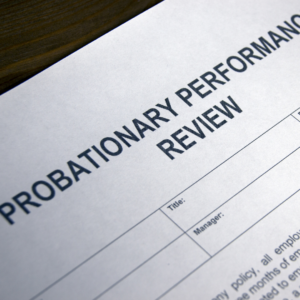
The realization that an employee is underperforming can be painful for both the employee and the employer. This is particularly true when employment began with both parties foreseeing only good things moving forward.
In some cases, an underperforming employee can be placed back on track through simple intervention such as coaching or possibly a change in assignment or job duties. The process might also receive help from reviewing the employee’s original job description to decide if anything might have changed, that’s creating difficulty in fulfilling the role.
Take Quick Action
If there is an issue with an employee’s performance, it’s important to promptly communicate any performance deficiencies in writing. This should include concrete examples such as project deadlines missed or an inability to execute the duties of the role. Communication should also include how the employee can improve the deficiencies. If the employee expresses a desire to improve, the manager/supervisor could also schedule regular check-in meetings to watch improvements.
Throughout this process, its important managers have the training to oversee such situations in the best possible manner. This includes providing employees with correct written information promptly. The employee should also have up-to-date access to annual written performance reviews along with any constructive feedback provided to the employee.
Human resources should also be looped in when addressing a performance issue to ensure the proper supporting documentation meets the organization’s performance standards. This will help ensure the matter is managed correctly within a legal framework and may also include less formal documentation such as email.
Create Accountability and Consistency
If the professional relationship cannot be saved, it’s time for an employer to look for ways to minimize potential damage to the organization, to internal teams, and clients who interact with the individual to protect a company’s legal interests.
This may include the creation of a written performance improvement plan. A plan will clearly outline the performance failures, define reasonable improvement goals, and create a timeline for improvement over a 60- or 90-day period. If the situation includes misconduct of some kind, an employer might also consider disciplinary action that could include a written warning or suspension.
Finally, to protect the legal interests of the company, it’s important to treat all employees who are in a similar situation in regard to performance standards and/or progressive discipline in the same manner.


